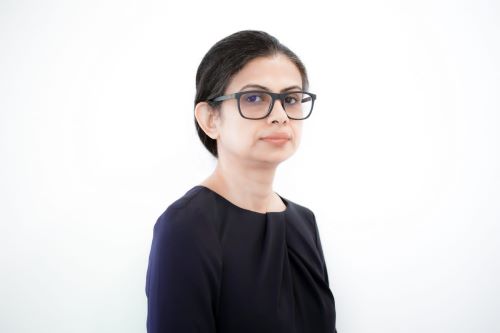Woman experiences first bite of solid food in a decade following revolutionary POEM Surgery

It has taken more than a decade for a 59-year-old Sudanese woman with achalasia, a rare oesophageal disorder, to regain her ability to eat and drink comfortably and sleep lying down. A cutting edge, minimally invasive procedure called Peroral Endoscopic Myotomy (POEM) was successfully performed by the expert consultant gastroenterologist at Medcare Royal Specialty Hospital in Al Qusais three months ago.
For over a decade, the patient had been battling achalasia, a rare oesophageal motility disorder, which had significantly impacted her quality of life. The condition made swallowing progressively difficult and caused her to depend solely on liquid foods. Additionally, she experienced constant chest pain, regurgitation, weight loss, and the sensation of food and liquids becoming stuck in her oesophageal. These symptoms compelled her to sleep in an upright position to prevent severe regurgitation during the night.
Despite numerous consultations and tests, she was repeatedly misdiagnosed with gastro-oesophageal reflux disease (GERD), leading to ineffective treatments. “It became really bad,” the patient shared. “We often underestimate how crucial it is to be able to swallow properly. My chest pain and cough were so severe that I avoided eating and drinking, which caused significant weight loss and malnutrition. I felt nervous all the time, avoided social gatherings, and couldn’t figure out what was wrong with me”.
In November 2024, with her condition worsening, the patient sought the expertise of Dr. Mohamed Abdelhafez at Medcare Royal Specialty Hospital. Utilizing his 20 years of clinical experience, he conducted a comprehensive evaluation, including oesophagal manometry and high-resolution endoscopy, leading to an accurate diagnosis of achalasia. This precision corrected years of misdiagnoses and brought the patient hope.
Achalasia is a rare condition, affecting 8–12 people per 100,000 globally. It is caused by the inability of the lower oesophageal sphincter (LES) to relax, combined with weak or absent peristalsis (the muscle contractions that move food and liquids through the oesophagus). This leads to difficulties in passing both food and liquids into the stomach, causing significant symptoms like dysphagia (difficulty swallowing), chest pain, regurgitation, and weight loss.
“Because of overlapping symptoms like swallowing difficulty, chest discomfort, and regurgitation, achalasia is often misdiagnosed as GERD,” Dr. Abdelhafez explained. “However, advanced diagnostic techniques such as manometry and endoscopic evaluation are crucial in distinguishing these conditions.”
POEM is a state-of-the-art endoscopic procedure designed to relieve the symptoms of achalasia by addressing the root cause—failure of the LES to relax. During the procedure, an endoscope (a flexible tube equipped with a camera) is inserted through the mouth. Through precise dissection and myotomy (cutting of the spastic LES muscle), the procedure restores normal oesophagal function without the need for open surgery.
“POEM provides immediate and long-lasting relief,” said Dr. Abdelhafez. “The minimally invasive nature of the procedure allows for a faster recovery and fewer complications compared to traditional surgical methods. However, it requires the expertise of a multidisciplinary team, including gastroenterologists, anesthesiologists, specialized nurses, and post-procedure rehabilitation support like speech and swallowing therapy.”
Following the procedure, the patient experienced remarkable improvements. For the first time in ten years, she could eat solid foods, drink liquids, and sleep lying down without fear of regurgitation.
“After ten years of suffering, my life has changed completely,” she shared. “I am grateful to Dr. Abdelhafez and the team at Medcare Royal for their expertise and compassionate care. Being able to eat, drink, and sleep comfortably feels like a miracle.”
Medcare Royal Specialty Hospital continues to pioneer advanced medical treatments, offering patient-centered care and innovative solutions for complex conditions. With successful outcomes like these, the hospital reaffirms its position as a leader in the region’s healthcare landscape.
Last Updated on 2 months by News Desk 1












